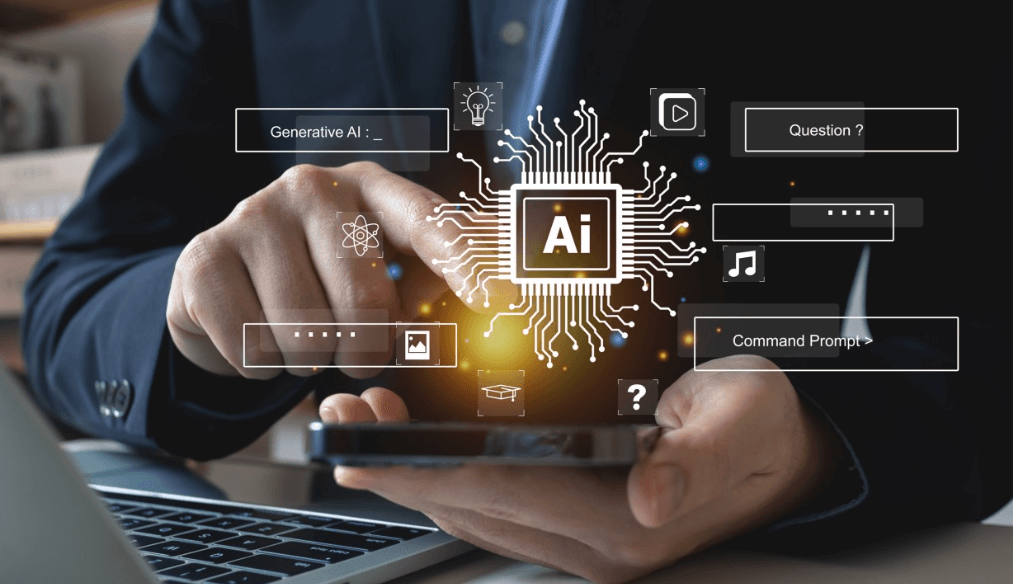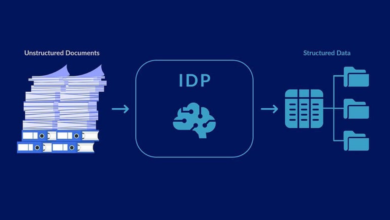
How AI Is Redefining Search Engine Optimization
Search Engine Optimization (SEO) has been a cornerstone of digital marketing for over two decades, evolving through numerous algorithm updates and technological shifts. However, the rise of Artificial Intelligence (AI) is now transforming SEO in ways that go far beyond traditional keyword stuffing and backlink building. AI-based SEO is ushering in a new era where machines understand not just keywords but context, intent, and user experience—fundamentally changing how websites rank and how marketers strategize.
In this blog, we explore how AI is reshaping SEO, what this means for businesses, and how you can adapt to stay competitive.
The Evolution: From Keywords to AI-Driven Search
For years, SEO primarily revolved around optimizing content for specific keywords and earning backlinks to demonstrate authority. Search engines, however, are no longer simply matching keywords with pages. With the integration of AI-powered algorithms, Google and other search engines are now interpreting search queries with much deeper understanding.
AI-Powered Algorithms
Key AI innovations like Google’s RankBrain, BERT, and MUM have revolutionized search by applying Natural Language Processing (NLP) and machine learning to comprehend the nuances of human language. These models help search engines:
- Understand the intent behind queries
- Interpret complex and conversational searches
- Deliver results that consider context, synonyms, and user preferences
This shift means SEO success now depends on creating content that matches user intent and context, not just keywords.
See also: Virtual CFO Services in India: Cost-Effective Financial Expertise at Your Fingertips
Content Creation and Optimization Through AI
One of the biggest areas impacted by AI is content creation and optimization. AI tools can analyze vast amounts of data to recommend what content topics to pursue, how to structure articles, and even generate drafts.
Smarter Keyword Research & Topic Clustering
AI-based SEO tools go beyond traditional keyword volume metrics. They group related keywords into clusters based on semantic relevance and user intent. This helps marketers build comprehensive content hubs that cover entire topics rather than isolated keywords, increasing topical authority.
AI-Generated Content Assistance
Platforms like GPT (OpenAI), Jasper, and Copy.ai assist in generating high-quality, readable content quickly. While AI doesn’t replace human creativity, it speeds up brainstorming, drafting, and editing — enabling marketers to focus more on strategy and refinement.
Automated Content Audits
AI tools can audit existing content for SEO performance and readability, suggesting improvements like keyword optimization, internal linking, and meta tag enhancements. This continuous optimization keeps websites aligned with evolving search algorithms.
Enhanced User Experience with AI
Search engines increasingly prioritize user experience (UX) signals in their rankings. AI helps websites deliver personalized, seamless experiences that keep visitors engaged.
Personalized Search Results
AI analyzes user behavior, location, and preferences to tailor search results, making SEO efforts more focused on satisfying specific audience segments.
Voice and Visual Search
With the surge in voice assistants and image search, AI enables search engines to process spoken queries and interpret visual content. SEO now requires optimizing for conversational phrases and multimedia assets.
Chatbots and Virtual Assistants
Many sites deploy AI chatbots to improve engagement and reduce bounce rates—factors that indirectly influence SEO by increasing session duration and user satisfaction.
AI in SEO Analytics and Competitive Intelligence
AI is not just changing content and search behavior but also how marketers analyze performance.
Real-Time Data & Predictive Analytics
AI-powered analytics platforms provide instant insights into traffic patterns, keyword trends, and competitor strategies. They even forecast emerging search topics, allowing marketers to get ahead of the curve.
Automated Competitor Analysis
AI tools scan competitors’ websites to identify content gaps and backlink opportunities, empowering SEO teams to create more effective strategies based on data-driven intelligence.
Challenges and Ethical Considerations in AI-Based SEO
While AI-based SEO offers powerful advantages in efficiency, accuracy, and scale, it also presents several challenges and ethical concerns that marketers and businesses must carefully navigate.
Over-Automation Risk
One of the biggest pitfalls is an over-reliance on AI tools to automate every aspect of SEO content creation and strategy. While AI can generate content quickly, it often lacks the subtlety, creativity, and emotional connection that human writers bring. Over-automation risks producing generic, repetitive, or formulaic content that fails to engage readers or build genuine brand authority. This can ultimately hurt user experience and reduce trust in your website.
Bias and Transparency
AI algorithms learn from vast datasets, which sometimes contain unintentional biases. If these biases go unchecked, they can influence which content gets ranked and how it’s presented, potentially skewing search results unfairly. Transparency about how AI influences SEO rankings is still evolving, and businesses need to be aware of the ethical implications. Ensuring diversity in training data and regularly auditing AI outputs helps mitigate bias.
Quality Control and Authenticity
AI-generated content must undergo rigorous human review to ensure accuracy, relevance, and authenticity. Misinformation, outdated facts, or poorly contextualized text can damage credibility and SEO rankings. Human editors are crucial for fact-checking, maintaining tone and voice consistency, and infusing content with the nuance that resonates with real users.
Balancing AI Power with Human Insight
Ultimately, the key to effective AI-based SEO lies in striking a balance between leveraging AI’s analytical and creative assistance and applying human judgment. Marketers need to remain actively involved in shaping strategy, crafting compelling narratives, and making ethical decisions about content deployment.
Preparing for the Future of AI-Based SEO
The landscape of SEO is rapidly evolving into a hybrid model where humans and AI work in synergy. SEO professionals who adapt to this blend of technology and creativity will be best positioned for success.
Here’s how you can prepare:
Stay Current with AI Developments
AI in search is continuously advancing—from natural language understanding to AI-driven content generation and search personalization. Regularly updating your knowledge about algorithm changes and AI capabilities ensures your SEO strategies remain relevant and effective.
Use AI Tools to Augment, Not Replace Your Strategy
AI should serve as an enhancement to your SEO workflow, helping you analyze data, identify opportunities, and create content faster—not as a complete substitute for human creativity and strategic thinking. Use AI insights to inform decisions, then apply your expertise to tailor and refine your approach.
Prioritize User-Centered, Meaningful Content
Search engines increasingly reward content that satisfies user intent, offers real value, and provides a seamless experience. Focus on producing insightful, well-researched, and engaging content that addresses your audience’s needs, emotions, and questions.
Maintain Quality Control and Ethical Standards
Consistently monitor AI-generated content for quality, accuracy, and fairness. Use ethical guidelines to govern how AI tools are deployed, and maintain transparency with your audience to build long-term trust.
Conclusion
AI is no longer a distant future concept—it is actively reshaping the SEO landscape today. Through sophisticated language processing, smarter content optimization, personalized search results, and data-driven insights, AI-based SEO enables marketers to achieve faster, more precise, and more impactful results.
Businesses that embrace AI as a strategic partner in their SEO efforts unlock new pathways for growth, improved visibility, and enhanced customer engagement in an increasingly competitive digital world.
If you want to harness the full potential of AI-based SEO but need expert guidance to navigate this complex landscape, consider partnering with specialists who understand both the technology and the art of SEO. Their expertise will help you integrate AI tools into a comprehensive, ethical, and effective SEO strategy—combining cutting-edge innovation with the essential human touch that truly connects with audiences.
Ready to transform your SEO strategy with AI? Book a call with Gushwork today and start unlocking the future of search optimization.




